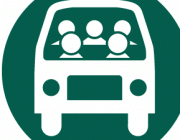
At Indianapolis CPCU Annual Meeting, five distinguished panelists led a fascinating discussion on The Sharing Economy. The concept of ride and home sharing was forged by millennials, but now impacts society as a whole.
Transportation network companies (TNC’s) are quickly emerging in the United States as ride sharing is now available in more than 250 cities. Home sharing is expanding with companies like Airbnb’s international home sharing platform. Tony Canas, CPCU, AU, AIC, ARM, Are, ASLI, API, AIS , AINS, discussed the marketing aspect. “Millennials love Uber and the sharing economy is not going away”, with the expansion of smart technology, millennials seeking any means to simplify life, reduce excess, create flexible employment opportunities. “Do people really need to own a car?”
Kelly Campbell, Vice-President of Property Casualty Insurers Association of America, gave the political perspective. “2014 was a pivotal year for transportation network companies such as Lyft, Uber and Sidecar”. Heated public debate amongst the TNC’s, fueled by the Taxi Industry, pressed commissioners and legislatures to mandate insurance and risk management for TNC’s app “coverage periods 1-4”.
Brian Gerritsen, CPCU, Managing Director of Excess Casualty at Travelers discussed this “dynamic, evolving topic” from the corporation’s perspective. Recent law suit (s) how these new companies manage risks will determine their success or failure. TNC’s and Home Shares are realizing that operational risks are broader than initially expected including auto, general, cyber, directors and officers liability, EPLI, and workers compensation.
Lending further expertise on managing risk, David Hurt, CPCU, MBA and Claims Executive and Vice President for Genre, reiterated that there is no coverage under a personal auto policy for a commercial or for-hire vehicle, however “the big money question” when is a vehicle a commercial vehicle, complicating claim processing. Additionally, “what if a driver works for multiple TNC’s, who is primary, what about permissive user issues and what if multiple passengers are from multiple TNC’s?” Home sharing exposures, according to Hurt, are “not the same volatility “as ride sharing, include social host liability, dangerous property conditions, and damage to other dwellings.
The coverage issue in the personal auto policy is the exclusion for using a car for hire as public or livery conveyance. Kevin Poll from Insurance Services Office, explained ISO recently made available the Advisory Policyholder Notice to stress the public or livery conveyance exclusion, reinforcing the current public or livery conveyance exclusion including the period of time while an insured is logged into a transportation network, regardless of passenger occupancy. ISO is developing a personal auto policy optional endorsement (with corresponding rules and related rating) covering “Phases 1 and 2”, (when the driver logs into the TNC app until a passenger has entered the vehicle). “Providing definitive coverage for Phases 1 and 2 may help reduce potential claims handling difficulties for insurers”.
With respect to home sharing, “ISO is developing forms covering damages or injury arising out of home sharing”, applicable to both the host and landlord.
All agreed, the “Sharing Economy” is evolving, impacting the insurance industry.